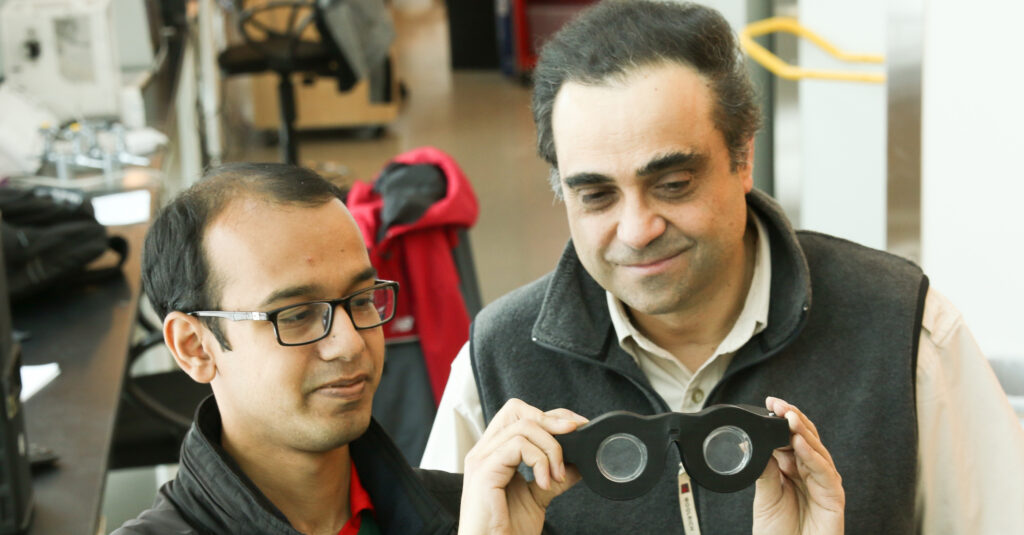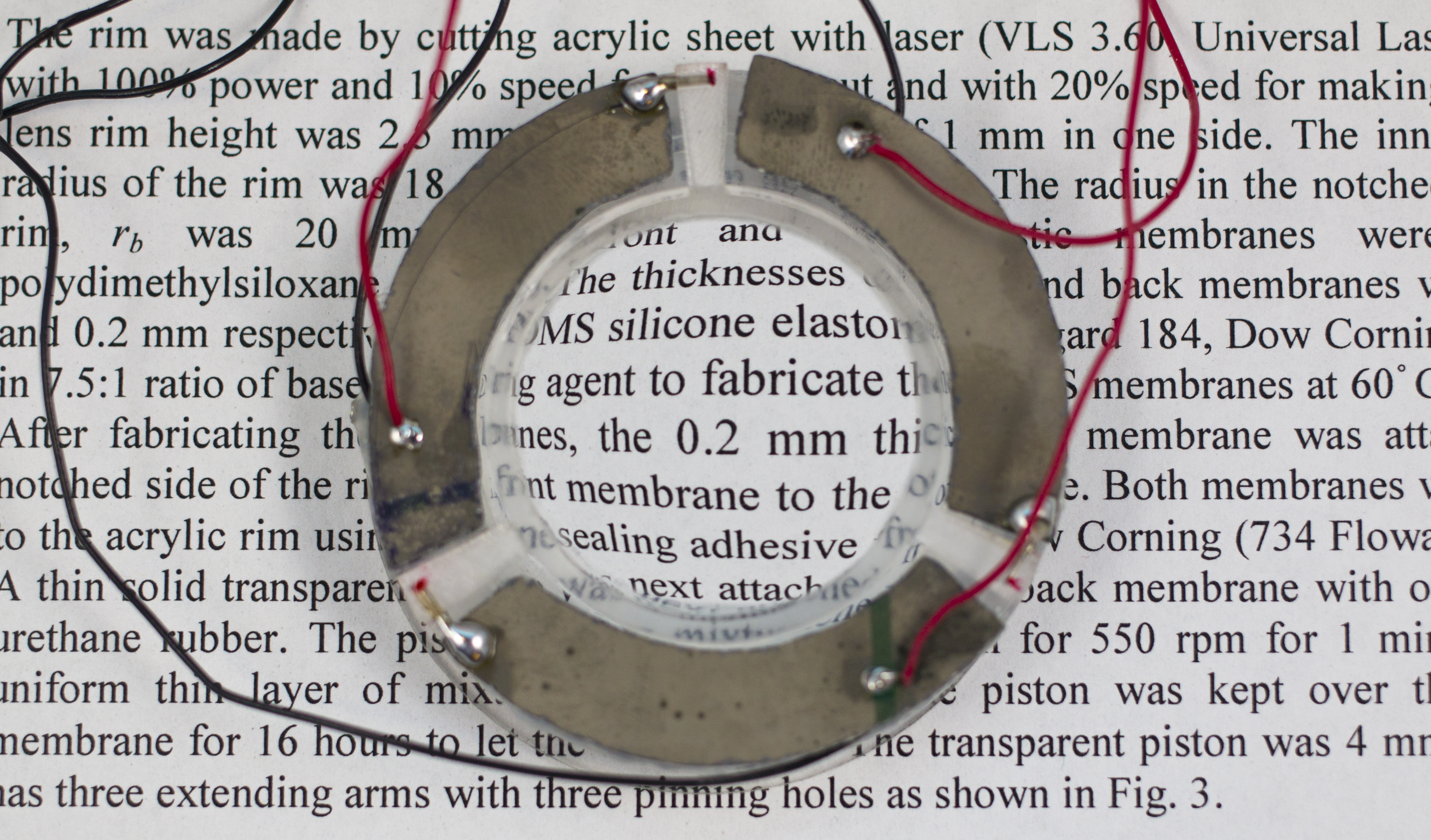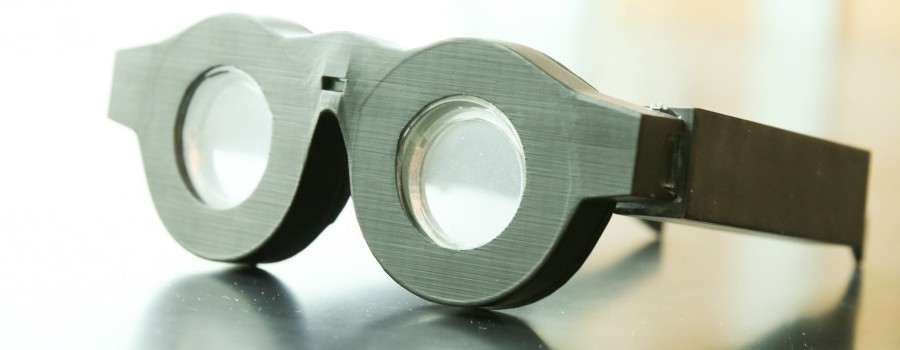Fellow spec wearers unite! Gone will be the days when you have to switch your glasses during an episode of Stranger Things just to check your phone – smart glasses are on the way!

Electrical and computer engineers from the University of Utah have created self adjusting glasses, which will make everyday life that much easier for those of us suffering from nearsightedness and farsightedness respectively.
Led by professor Carlos Mastrangelo and doctoral student Nazmul Hasan, the team have designed glycerin (thick colourless liquid) based lenses and enclosed it with flexible rubber-like membranes in the back and front.
The rear membranes are connected to a series of three mechanical actuators that push them back and forth like a piston, which changes the curvature of the liquid lens, and as a result, the focal length between the lens and eye.

A healthy functioning human eye actually does this on its own, but as people age the lens loses its ability to focus properly. This is why people need glasses or bifocals to see.
These smart lenses are fitted into special frames (also invented by Mastrangelo), with a distance meter equipped at the bridge, which measures the span between the glasses and an object via pulses of infrared light. All the wearer needs to do is look at an object and the glasses will readjust themselves. According to the inventors, it takes about 14 milliseconds for the lenses to change focus from one object to another.

The invention is currently in its early stages, but it will work with an accompanying app where all the user has to do is input their prescription and the lenses will automatically calibrate via Bluetooth connection. It also comes with a rechargeable battery that will last more than 24 hours – a longer battery life than your average iPhone.
This might mean bad news for optometrists however, as users could potentially only have to purchase one pair of glasses for their entire lifetime since they would constantly adjust to their eyesight.
The complete findings can be found at The Optical Society.

